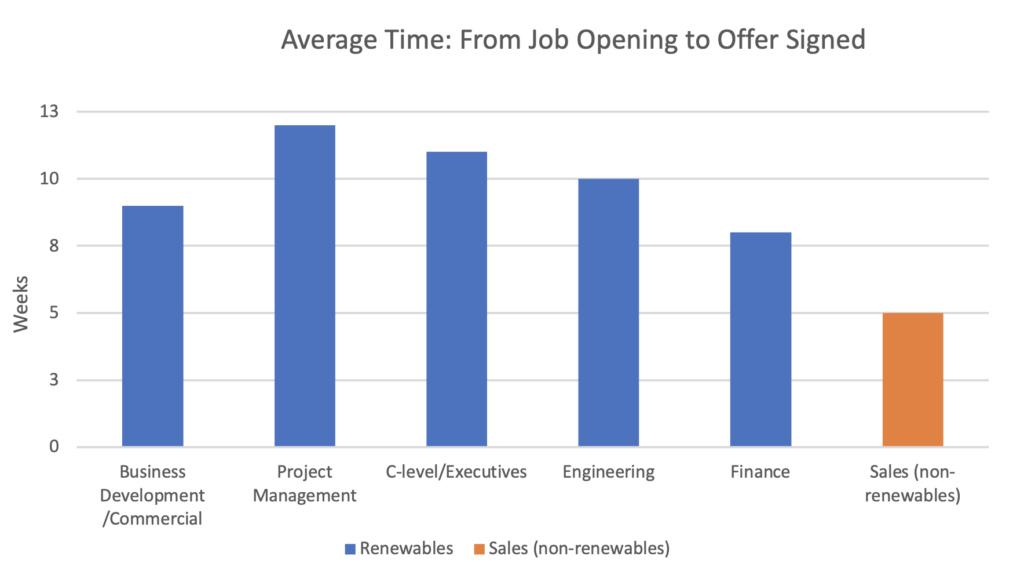
This year, Japan’s renewable energy labor market has retained its authentic trait of being largely candidate-driven. There is a shortage of candidates amid an abundance of job openings, in contrast to the situation in most developed economies with a strong renewable energy industry, such as the UK or Australia.
The market structure is not the only difference. There are other traits that are particular to Japan’s labor market, which are especially important for overseas companies to keep in mind as they expand locally:
Low Candidate Visibility:
The go-to platforms that provide candidates visibility are not yet widely used in Japan. Only about 3% of professionals in Japan are registered on LinkedIn. What’s more, the country has one of the lowest percentages of English speakers among developed economies.
Long-Termism Culture:
Japan is famous for its lifetime-employment labor market. While that was starting to shift in recent years, recent economic tailwinds have pushed back the shift with candidates again favoring stability.
Older Demographic:
Over 34% of the population is above 60, which is also the retirement age in most companies.
Candidate-Driven Demand:
There are about two jobs for each applicant on average, with the ratio rising to 10:1 in some of the emerging and dynamic industries.
Brand Is King:
Facing intense competition for top candidates, companies with well-represented brands, as well as those willing to accept high flexibility and act quickly, are the ones that tend to “beat the market”.
In the renewable sector it’s not unusual to see candidates with three or more competing offers. This makes it harder for employers to control hiring and onboarding. In addition, the interview process often drags on for weeks or months, which means those that act fast tend to be the ones that secure the best talent.
The chart on the next page shows the average time required to fill a position for a mid- level management / specialist and higher in Japan’s renewables sector. This includes positions with manufacturers, EPC contracts, developers, private equity funds and others, and it spans jobs in everything from offshore and onshore wind and solar to energy storage, ammonia and hydrogen.
For reference, there’s also the timeframe for hiring sales staff outside of the renewables sector.

Riku Ogawa is a Principal Consultant at Titan GreenTech, a Tokyo-based human capital and executive search firm with a focus on renewable energy and clean technology markets. Titan supports global companies with Japan market entry, as well as scale-up and key hiring.
This article originally appeared in a Japan NRG Weekly report. Japan NRG is a one-stop platform that delivers both intelligence and analysis on energy and electricity markets in Japan.
